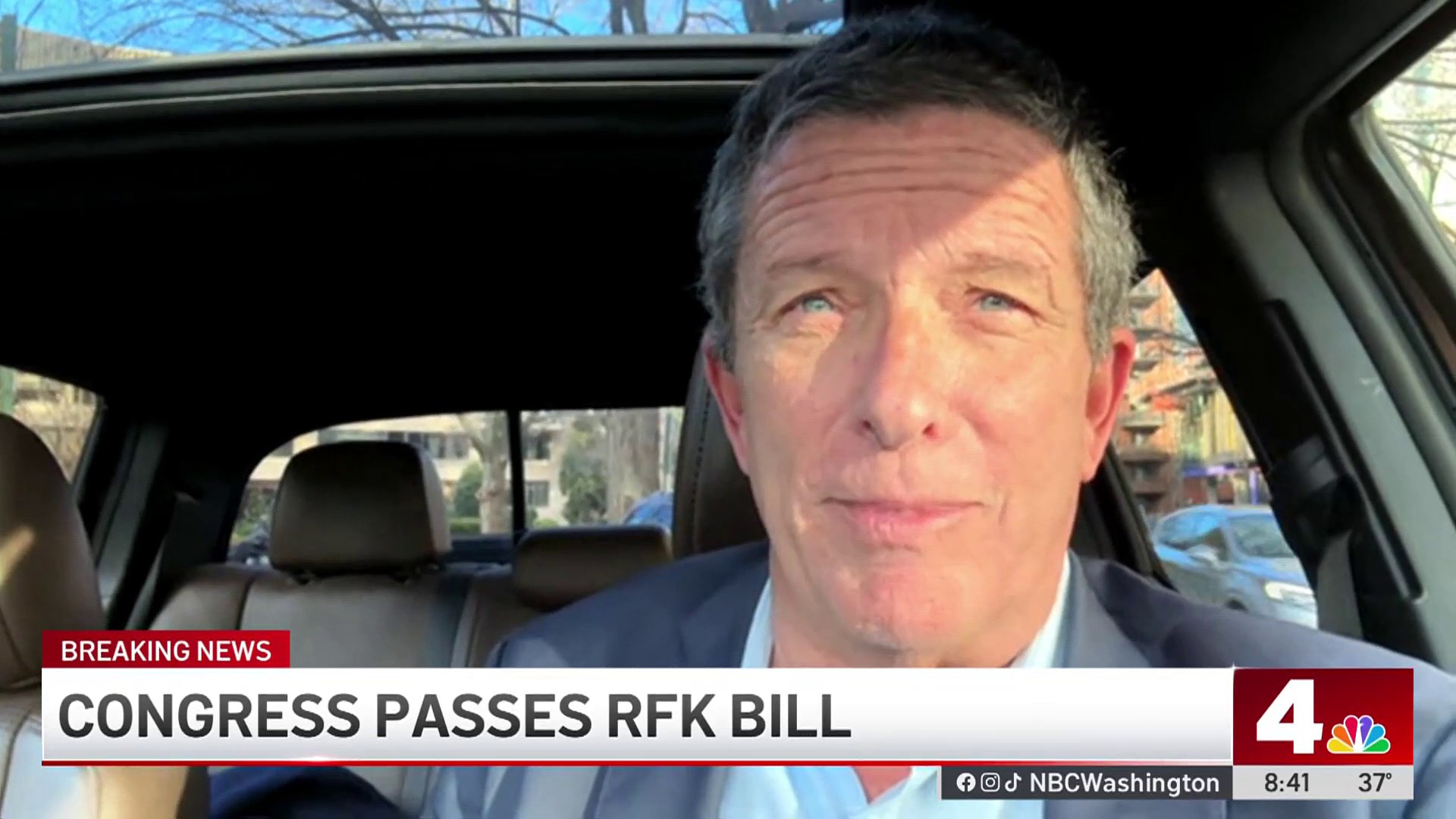Legislation that would admit Washington, D.C., to the U.S. as the 51st state will be brought to the floor of the House of Representatives on June 26, U.S. House Majority Leader Steny Hoyer said.
The statehood bill, H.R. 51, is grabbing new attention following the Trump administration's use of federal agencies to police the streets of the District during Black Lives Matter protests sparked by the death of George Floyd.
D.C. Mayor Muriel Bowser said those actions brought nationwide attention to the District and its campaign for statehood.
House Speaker Nancy Pelosi and Hoyer joined Washington, D.C., leaders Tuesday and announced a date has been set to bring the issue of D.C. statehood to the floor for a vote.
Pelosi said she is prepared to "right a historic injustice" by supporting the legislation, calling the disenfranchisement of D.C. residents "unjust, undemocratic and unacceptable."
More than 220 representatives have co-sponsored the bill, meaning it has the numbers of pass.
Local
Washington, D.C., Maryland and Virginia local news, events and information
It would be a historic vote: If passed, it would be the the first time a chamber of Congress endorses D.C. statehood.
Leaders touted that enfranchising more than 700,000 city residents would confront racial inequality in America.
About 44% of D.C.'s residents are Black, which means statehood would give more than 319,000 African-Americans voting representation in Congress.
"This is an appropriate time to bring the bill to the floor," Hoyer said. "To show respect for a city that has a very large African-American population."
Hoyer, who represents part of Maryland, referred to Bowser as governor when introducing her at the press conference. D.C.'s nonvoting congresswoman, Del. Eleanor Holmes Norton, and city council Chairman Phil Mendelson also attended.
"I am very grateful for the priority our leadership has given this bill," Norton said. She said that the pandemic has meant that only a few bills will go under the consideration of the full House this year.
Norton told the story of her great-grandfather, Richard Holmes, who she said escaped slavery in Virginia and traveled to D.C., but continued to be denied full representation.
City leaders' campaign for statehood has gotten more forceful in the wake of protests sparked by Floyd's death in police custody.
During the mostly peaceful demonstrations, Bowser clashed with the Trump administration over the use of federal forces to police Black Lives Matter protests.
Bowser responded with an op-ed in the Washington Post trying to rally support for statehood, saying that the federal government threatened the city's autonomy when it deployed federal law enforcement agencies, many of whom didn't wear identifying insignia.
Bowser called on readers to elect congressional leadership who would support admitting the city to the Union.
She said that D.C. also struggled to get on calls with governors when important decisions were being made in the coronavirus crisis, because of its status as a city.
While the Senate's version of the Washington, D.C Admission Act has 38 co-sponsors, it faces steadfast opposition from Republicans and is unlikely to pass a floor vote in the upper chamber.
Senate Majority Leader Mitch McConnell denounced the plan, saying it would send two more Democrats to the Senate.
More than 75% of voters in D.C. are registered as Democrats. Republicans make up less than 6% of registered voters in the District.
Supporters of statehood say the issue shouldn't be a partisan one.
"I hope that Sen. McConnell cares enough about our democracy to allow a vote," Hoyer said.
"This is about citizenship," D.C. Council Chairman Phil Mendelson said at Tuesday's press conference. "The right to vote in the United States of America should not be a partisan issue."
The statehood bill that D.C.'s leadership has been pushing for would rename the area Washington, Douglass Commonwealth and give it one voting House member and two senators. H.R. 51 would cede the White House, Capitol Hill and land with other federal properties to the federal government.
Admission to the union would end powers the federal government has to review and stall local D.C. laws.
Rep. Carolyn B. Maloney, the Chairwoman of the Committee on Oversight and Reform, praised house leaders for moving H.R. 51 forward.
"I urge my colleagues to correct this historic wrong and support this landmark legislation to give basic human rights to the disenfranchised citizens of the District of Columbia," she said in a statement.
In February, the House Oversight and Reform Committee voted in favor of a bill to make D.C. the 51st state, sending the legislation to the House floor.
It was the first markup for a statehood bill since 1993.
That year, a statehood measure was shot down 277 to 153, with all but one Republican and many Democrats against it, the Washington Post reported.
Former Vice President Joe Biden and more than 20 other Democrats who ran for the presidential nomination voiced support for statehood last year.
Mendelson said Tuesday that D.C. is better-run than it was in the 1990s, and is currently in a better position to endure financial disaster than some states.
Stay with News4 for more on this developing story.



